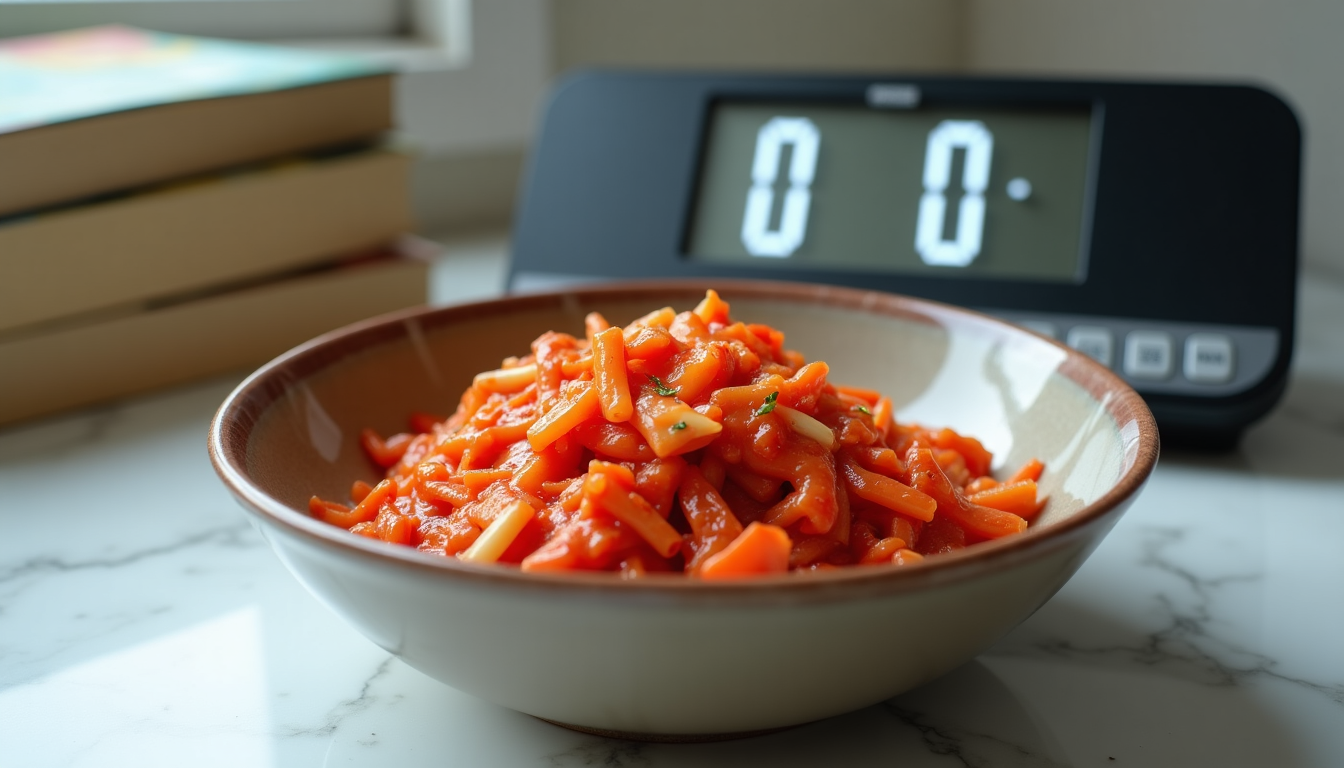The Kimchi-Obesity Connection: Why This Trendy Study Isn't the Weight Loss Answer You're Looking For

Let's talk about kimchi, y'all. And no, this isn't another one of those "miracle food will make you skinny!" posts that flood your feed every other day. 🙄
As someone who grew up watching both my Korean grandmother and food scientist mother make kimchi from scratch, I've got some thoughts about the latest study claiming kimchi can prevent obesity. Spoiler alert: it's complicated.
The Kimchi Craze Is Real (But Let's Get Real)
First things first - I nearly spat out my morning coffee when I saw headlines screaming "KIMCHI PREVENTS OBESITY!" flooding my social media. As a food scientist, I've learned that whenever any study claims a single food is the answer to our health prayers, it's time to put on our skeptical pants.
The study in question, published in BMJ Open, followed 115,000+ Korean adults and found that those who ate 1-3 servings of kimchi daily had lower rates of obesity. Sounds amazing, right? But hold your fermented horses...
Why We Need to Stop and Think
Here's the tea (or should I say kimchi juice? 😉):
- The study was funded by the World Institute of Kimchi. That's like a chocolate study funded by Willy Wonka himself.
- It only looked at Korean adults. As much as I love drawing universal conclusions, populations with different genetic backgrounds and eating habits might respond differently.
- Correlation ≠ causation (my stats professor is somewhere nodding vigorously)
The Real Deal About Kimchi
Don't get me wrong - kimchi is legitimately awesome. Here's why:
- It's packed with probiotics (those good gut bacteria that make your tummy happy)
- Low in calories but high in fiber (hello, fullness!)
- Contains vitamins and minerals from fermentation
- Adds amazing flavor without tons of calories
But here's what many trending articles won't tell you: kimchi alone isn't going to magically melt away pounds. Trust me, I wish it would - I'd be eating it by the gallon!
The Cultural Context We're Missing
Something that really bugs me about how this study is being reported is how it strips away all cultural context. In Korean cuisine, kimchi isn't eaten alone - it's part of a balanced meal structure that typically includes:
- Multiple vegetable side dishes
- Moderate portions
- Less processed foods
- Social eating practices
See what I mean? It's not just about the kimchi!
So What Should You Actually Do?
Instead of jumping on the kimchi-will-save-me bandwagon, here's what actually makes sense:
- Enjoy kimchi if you like it! It's delicious and nutritious, but don't force yourself if it's not your thing.
- Think bigger picture. Focus on overall eating patterns rather than single "miracle" foods.
- Be skeptical of food trend headlines. If it sounds too good to be true... well, you know the rest.
- Appreciate cultural foods in context. Understanding traditional eating patterns often teaches us more than isolated studies.
My Personal Take
Look, as someone who literally has kimchi in her DNA (and currently in her fridge), I want everyone to love it as much as I do. But as a scientist, I need you to know that sustainable health isn't about any single food - it's about building balanced, enjoyable eating habits that work for YOU.
Want to try kimchi? Awesome! Just don't expect it to be your weight loss silver bullet. And maybe start with small portions unless you want your coworkers giving you side-eye at lunch (learn from my mistakes, people 😅).
Let's Chat!
Have you jumped on the kimchi bandwagon? Are you skeptical of "miracle food" studies? Drop a comment below - I'd love to hear your thoughts! And if you want some tips on incorporating kimchi into your meals without overwhelming your taste buds (or your roommates), hit me up!
Remember: Good health is like a good fermentation - it takes time, the right conditions, and you can't rush the process.
Now if you'll excuse me, I have some kimchi fried rice calling my name... 🥘
P.S. If you enjoyed this reality check, follow me for more science-based food myth-busting and occasional fermentation puns. They're my jam (get it? Because fermentation... okay, I'll stop now).




